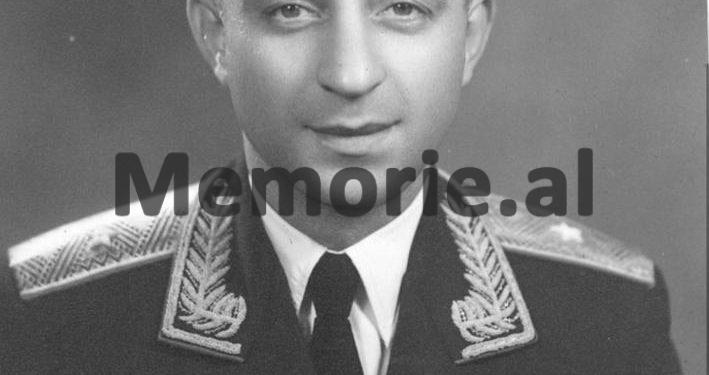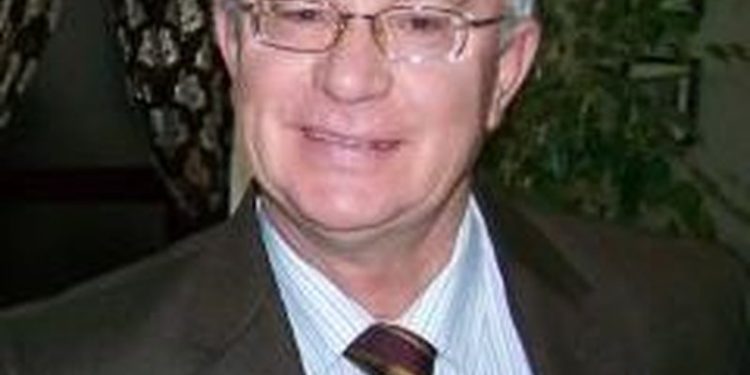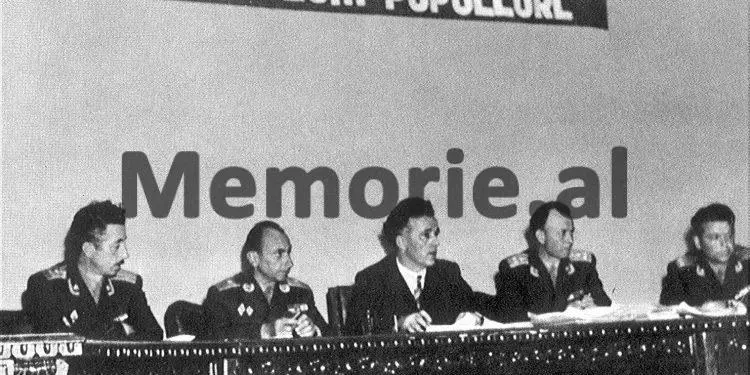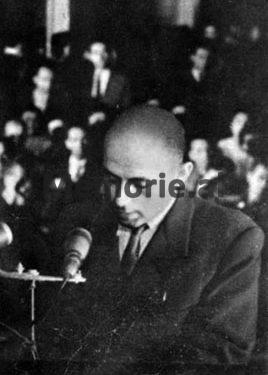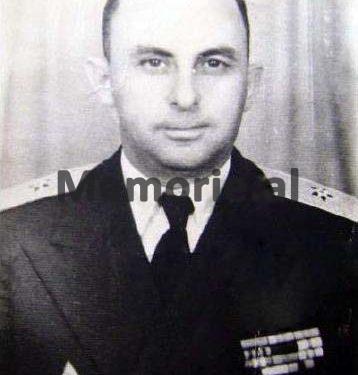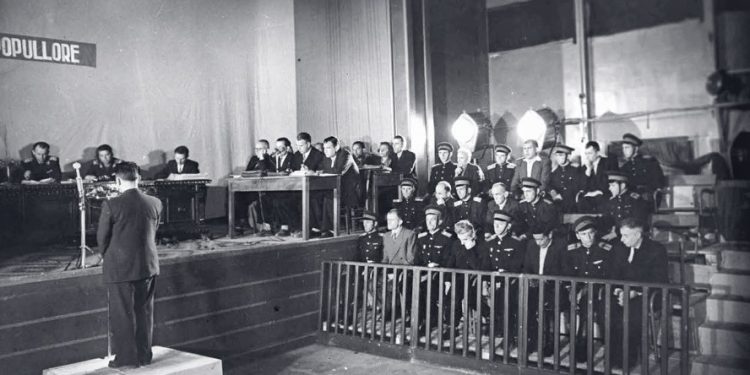By Hyqmet Zane
Memorie.al / The writing of the history of Albania as it is currently being discussed with the leading role of the Academy of Sciences, through Skënder Gjinushi, Pëllumb Xhufi and Paskal Milos, who are involved in this project, creates a feeling of disbelief in their sincerity. Showing in time about the one-sidedness of their position in favor of the dictatorship and the dictator, it is understood that this history will also be written according to the model that “the winners write the history, as they want”. In fact, this is how the great historical events that left their mark on the memory of generations, are either not treated at all, or untruths are written, as communist historiography has said.
Instead of entering
With this naturalness and cold logic, I discussed about 30 years ago, with Lutfi Avdul Sejko, the persecuted political member of the so-called “Teme Sejko’s Cham Group”. The intellectualism of this man and his quality education with a descent from the family of Sejkats of Filati, created the credibility of the words and thoughts he expressed. Almost every day I would be a good listener of uncle Lutfiu, who told with a beautiful narration and in an Albanian qualified as Cham, by an educated man.
I listened attentively, especially after the article that appeared in the newspaper “Çamëria” about the truth of that scenario and that hostile fatherhood that was poured out on the Albanians of Chamëria, who came piece by piece from the migration as a result of the Greek genocide, through gangs of Andarts with Napoleon Zerva in charge over the Cham population.
Lutfi Sejko was one of the last arrested of that group in Elbasan, who would later join Dalan Sulo in Cerrik, who was from Galbaqi. When Lutfiu was in the prison of Laçi, together with Petrit Hoxha from Elbasan, brilliantly washed in “Lui Pastër” in France, Halim Xhelo, former major-general and deputy minister of internal affairs, was also imprisoned. sentenced by Enver Hoxha. According to uncle Lutfiu, which Halimi had told him, he was present together with Kadri Hazbi, when they met in Saranda, with Enver Hoxha and Nikita Hurshov, with Teme Sejko.
Enver’s complaints to Hurshov, about Prime Minister Mehmet Shehu who did not listen to him, was stubborn and arrogant, the first Secretary of the Soviet Union, replied: “You complain to me about Mehmet. Here you have the excellent Teme Sejko, who can be prime minister”.
At this moment, according to Halim Xhelos, the so-called “Çam Group” was conceived as jealousy and a group with Mehemt Shehu. “What did you do with us, Halim”?! – Lutfiu asked him and he answered; “We found and did” and thus Halim’s confession to Lutfiu, he told me for days, fragment after fragment, until he passed away on April 13, 1995. Many years later, not only the writings of many protagonists but also have deceived in quite a few cases, or have alienated the truths, I have corrected many truths from the respected researcher Kastriot Dervishi, the former Head of the Archives of the Ministry of the Interior.
But, more than others, Hektor Sejko (deceased), son of Taho Mehemt Sejko, brother of Teme Sehjko, has meticulously told me the whole picture of that event, which continues to remain a taboo for historiography and which in many cases , avoided and retouched.
History
After 10 months of arrest, on July 28, 1960, at 11 o’clock, investigation and barbaric blackmail in the rooms of the communist inquisition, the dictator gave the verdict of shooting the so-called “Group of Teme Sejko and Tahir Demi”. It was May 30 and 31, 1961, that the firing squads would empty the magazines of their weapons on the Albanian sons of Cham mothers. They were Teme Sejko, Tahir Demi, Taho Sejko, Shaban Ademi, Avdul Resuli, Ali Xhelo Arapi, Hajri Mane, who, after that trial at the end of May 1961, would be shot, just as horses were not killed, and no longer people. Many people have guessed through fragments of conversations and stories told and written that the murders of these sons of Chameria were of different forms and in different places and conditions from the most inhumane and macabre.
There is even more to Teme Sejko than that, it is the memories of people who have witnessed the most unimaginable atrocities that can be done to a man, an Albanian from the pseudo-Albanians, an anti-fascist fighter and the only rear admiral that had the Albanian Navy, which ended so tragically, without a name or without a mole. Teme Sejko was neither the first nor the last, and his fellow countrymen, who also held ranks and positions for special merits, have never been returned those assessments by the Presidents of the Republic of Albania, as a sign of returning to the truths that existed and were unjustly alienated.
Is it forgetful or intentional, it is an extension in time of an undeserved shooting and punishment, which is being done by the segments of the former State Security, who are careful not to put in place the dignity of the moral and legal right of those sons , who were Albanians and who were treated as enemies.
And not only these, but also afterwards they were sentenced to be shot; Beqo Plaku, Ilia Gjyzeli, Jorgji Cukali, Nikolla Goçi, Theodhori Veto, who were described as collaborators of the leaders of the group and who were the devices of the anti-Albanian mind, which sought to eradicate from the face of the earth every person who was intellectual and who was not Greek Serbian. For the sake of the truth, it must be said that apart from those who were shot, if they were such, that there is not even a record kept, there are also a group of Albanian sons from Çameria, who not only did not appear in court, but were treated in that kind of religion that took his life in the chambers of the investigators commanded by Enver Hoxha himself, through Kadri Hazbiu, Mihallaq Ziçishti, Nevzat Haznedari and a certain Rexhep Kolli, etc. Taho Sejko, Teme’s brother, did not appear in court, he was eliminated in secret, as was Shaban Adem Kalo, who sought to defend Tahir Demi, when they went to arrest him.
It is not known how it ended, but their lives were so free for the criminals of the communist dictatorship. While the well-known commander of the anti-fascist “Chameria” gang, Haki Rushiti, was sentenced to death 3 times in absentia. It would be fatal for another part of these sons of Çameria, who were sentenced to maximum sentences and died in the prisons of Burrel, Spaçi and elsewhere, as; Sami Murati, Jonuz Purizo, Rushan Hasan Mullai, Dr. Aleksandër Kalivopulli, after being sentenced to 25 years, died in prisons in Burrel and elsewhere, as well as Vangjel Xhomaka, 25 years, (died in prison), Yzeir Sollopia, Kostandin Petro Vaso, sentenced to death, returned 25 years, ( died in prison), Pandeli Varezi, sentenced to be shot, returned to 25 years, (died in prison), Kasëm Karafili, 25 years, died in exile.
Everything that happened to the so-called “Chams” group had as a prologue Hilmi Seitin, who in April 1960, did not accept the ominous plan of creating a hostile group, to respond to Russian social-imperialism, after breaking with them .
Without further ado, Hilmian, as he was respectfully called in Shkodër and where he was always respected, was poisoned. This is how it is shown and this is how the facts exist, that what happened next proved everything: the deception by any means, which justified the intention of Teme Sejko and others, who could not believe that the minds of that part of Albanian bastards, had made the calculations as criminals that they were, they would go so far as to actually take their own lives, just because they had gotten into the made-up game. Halim Xhelo told Lutfi Sejko these things, one by one, in Laçi prison.
How many groups were created afterwards, just to bring the fixed idea of the dictator to the country, to eliminate all the Albanian intellectual elite, who did not become part of the UDB’s strategy, through its Serbian emissaries, Popović , Mugosha, Stojnič and Tempo, but also many others.
It was this idea that destroyed the Albanian Catholic clergy only because they nurtured the anti-Isthism inspired by the Albanian Homer, Gjergj Fishta.
There is an opinion that all the so-called “enemy groups”, which were eliminated after that infamous November 1944, would be exclusively intellectuals who had studied abroad, former students of Fultz’s American school, or who did not accept to be put at the service of Serbian plans, from Mustafa Gjinishi onwards, who became victims of communist betrayal. It was this anti-Albanian clique that, in the “name of the people”, killed, executed, hanged or eliminated this group of Teme Sejko and Tahir Demi without trial.
It was the first and only trial, which was held with loudspeakers and in public, as an expression of the provincial hatred that Enver Hoxha himself introduced among Albanians. This phenomenon could not be stopped even by the body of lawyers who were purely formal, to say the least, in front of a jahil prosecutor, like Aranit Çela, who at that time was the General Prosecutor and a judicial body, who acted on the basis of orders and not of justice, such as Shuaip Panariti, president of the Supreme Court, Major General Muharrem Kokomani, Colonel Sotir Spiro, Colonel Bejto Isufi, Lieutenant Colonel Hilmi Telegrafi and session secretary, Murat Deliallisi.
In front of this invented “Hostile Group”, it was those who had invented it, it was the dictator himself and the State Security. This moment was made public in the debate between Enver Hoxha and Kadri Hasbi, when the latter was to be punished. The elimination of this so-called “hostile group” was also an excellent advocate that Enver Hoxha’s government made for the Greek thesis on the elimination of the Cham intellectual elite, which had come out of the Anti-Fascist War and who were the representatives of that commitment of this province in World War II.
It was this thesis that even today, the official Greek circles say and re-say every time it comes to the Cham issue and its solution. It is the case to say that many of those who were considered enemies were in the leadership structures of the War and that together with the rest of the Chams, organized in the 4th Battalion of the 15th Regiment, constituted the important part of the contributions of the Chams in this war.
I would like to record here the 55-day war of Konispol against the German forces, where many martyrs fell. It was a real war like no other war, of the so-called Albanian army. And this is the merit of this population of Chameria, which was rejected and trampled on by the pro-Greek segments within the Albanian communist leadership, which significantly influenced to throw the idea of the so-called “collaborators with the invader”, of this population of Chameria .
Maybe he should have been alive, Nuri Zane, together with Hajri Fetahu and Osman Zeneli, Mezan Emin Jonuzi and Bejaz Muhamet Muho, or Alush Xhemil Sejko and many others, who were interned in German and Italian concentration camps as anti-fascists, to confess how untrue the Greek theses are. But more than that, how treacherous was Enver Hoxha’s government towards Albanian national interests, when it not only killed the Chams, but also sent them to exile in Lozhan in Maliq, in 1949, stripped them of their Greek citizenship in 1953, and later mud was thrown at the entire Cham community, after the shooting of the members of this group.
My comment
What crime had these sons of Albanians committed, who were sentenced and shot, as the harbinger of that great punishment that Enver Hoxha inflicted on the entire Cham population, displaced by genocide from their homes in Cham, after that 1961? No offense, but this was the philosophy of a criminal regime that remained in power through Macbethian nights against the Albanian Tatars. Writing about the truths of those events that happened 60 years ago, is not a matter of writing, because many, many times the infidelities committed and the barbarities implemented have been written and documented.
What is regrettable, even after 60 years, is the fact that even today the mud that was thrown on this innocent population, but also on its victims, has not been removed. Those 63 people from Çameria and the part within the state border have not received any apology in this trial in the early 60s, with the so-called non-existent “enemy groups” made up of Serbian-Greek anti-Albanianism, installed at the head of the Political Bureau and of Enver Hoxha.
Who should apologize, the state, the President, the judiciary or anyone else, for the 1,250 years of imprisonment that were given to these Albanians. When today we talk about writing the history of Albania by well-known names and related to the communist system, you understand why in the texts of the history of Albania, there is still a class war and these who became victims of a crazy idea from a man and a Stalinist system. Much documentation exists of this tragic, as well as inhuman, event, but that Macbethian event requires an entire film, which would be shocking to Hollywood filmmakers, just like the Jews of Europe.
Other convicts
Skender Bariu, dead, 25 years back
Dervish Sulo, dead, 25 years back
Nasho Grxho, dead, 25 years back
Gani Tartari, dead, 25 years back
Rexho the Elder, sentenced twice to 33 years in prison,
Xhemal Bali, 27 years in prison
Zalo Goxhai, 25 years in prison
Ali Goxhaj, 25 years in prison
Adem Osman Kalo, 25 years in prison
Osman Emini, 25 years in prison
Hasan Mero, 25 years in prison
Haxhi Bilal Mullai 25 years in prison
Kadri Saliko, naval officer, 25 years in prison
Sulo Veshi, 25 years in prison
Eqerem Veshi, 25 years in prison
Miho Shengjergji, 25 years in prison
Petro Duro, 25 years in prison
Miço Gogo, 25 years in prison
Mushir the Elder, 25 years in prison
Lole Djamanti, 25 years in prison
Luan Goxhai, 22 years in prison
Kerim Demo, 22 years in prison
Lutfi Sejko, 20 years in prison
Mehmet Kadri Bello, 20 years in prison
Hiqmet Bello, 20 years in prison
Mero Ali the Elder, 20 years in prison
Lelo Guda, 20 years in prison
Pilo Bushi, 20 years in prison
Dule Maze Mullai, 18 years in prison
Spiro Gogo, 17 years in prison
Asllan Veliu 15 years in prison
Tefik Emin Mero, 15 years in prison
Xhemil Demi, 15 years in prison
Hasan Gjyshi, 15 years in prison
Taip Kaloshi, 15 years in prison
Petro Gogo, 15 years in prison
Sotir Taho, 15 years in prison
Lole Gogo, 15 years in prison
Kaso Agushi, 15 years in prison
Syrja Musa Shehu, 15 years in prison
Janaq Gerxho, 15 years in prison
Nazmi Sulo Veshi, 11 years in prison
Hamit Demi, 5 years in prison
EPILOGUE
The list continues with names and years in prison for everyone who is speaking the truth and demanding retribution with the forgiveness that is necessary to be given to them, in the name of human justice. They were condemned as collaborators with the Anglo-Americans and the most ridiculous and absurd of these accusations was that they were also accused as collaborators with the Greeks. (?!) And who, the sons of Chameria, whom the Greeks killed and cruelly expelled from their ancestral lands. They deserve the state honor if this country really has a president who should also give these kinds of honors. Which country will remove the mud from the “enemy group of Teme Sejko and Tahir Demi”?
63 convicts and 1,250 years of imprisonment, apart from the murders!
That’s how it happened, the bullets of the betrayal of the communist government mercilessly fell on the bodies of the Albanian boys from Chameria, to kill not only that group called “enemy”, but to kill the idealism of the entire population and Chameria itself. To demand the legitimate right to punish a typical communist genocide. Memorie.al




